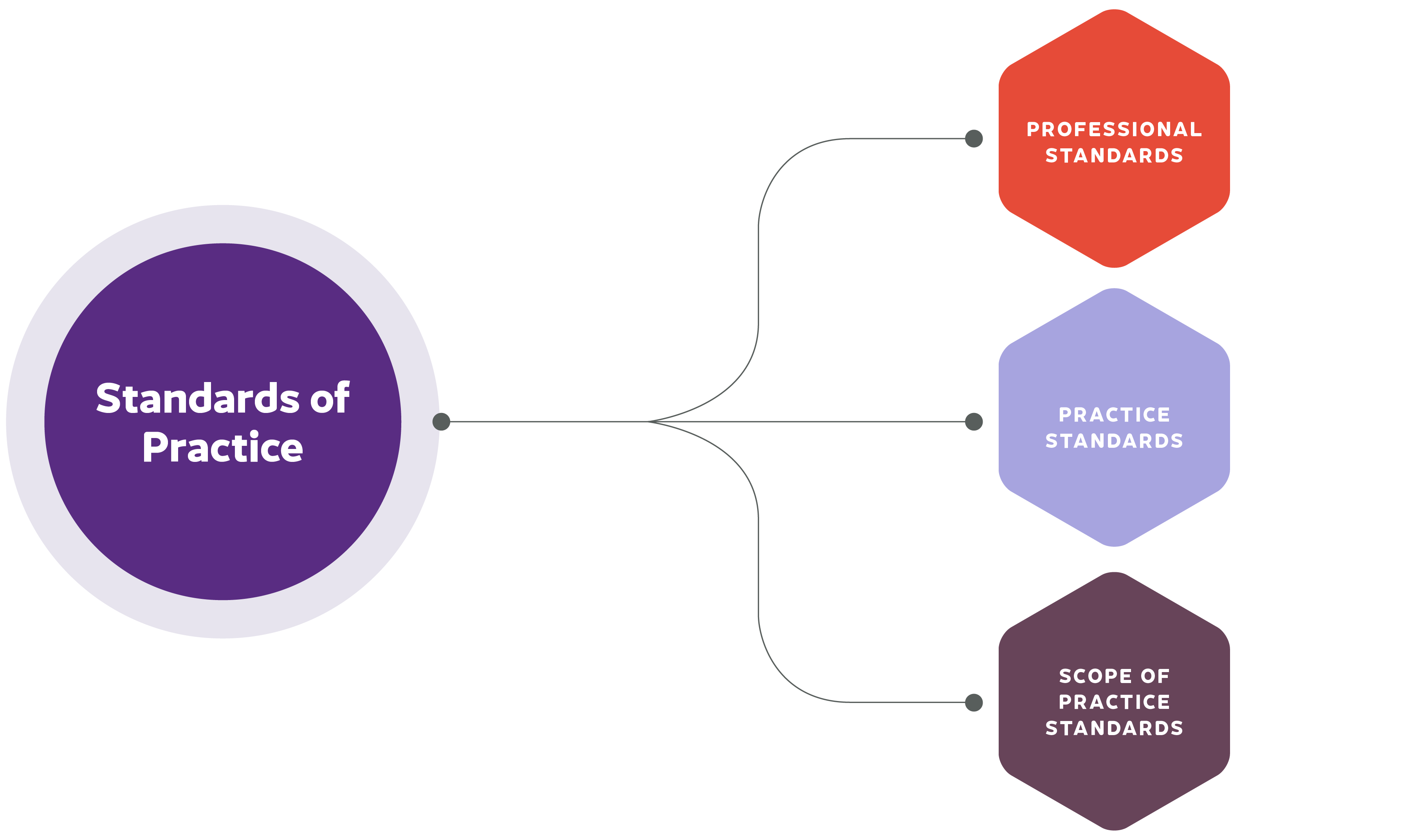The British Columbia College of Nurses and Midwives (BCCNM) is one of 18 regulatory colleges governed by the Health Professions Act. BCCNM was created in September 2020 through the amalgamation of the BC College of Nursing Professionals (BCCNP) and the College of Midwives of BC (CMBC). BCCNM’s mission is to regulate licensed practical nurses (LPNs), nurse practitioners, (NPs), registered nurses (RNs), registered psychiatric nurses (RPNs), and registered midwives (RMs) in the public interest. BCCNM does this by setting standards, supporting nurses to meet standards and acting if these standards are not met.
Under the Health Professions Act, BCCNM has the authority to establish, monitor and enforce standards of professional ethics and standards of practice to enhance the quality of nursing practice.
The professional standards for LPNs clarify the minimum requirements for LPN practice in any setting or nursing domain (clinical practice, administration, education or research) and provide indicators that BCCNM uses to measure LPN practice in British Columbia (BC).
LPNs meet these requirements in order to maintain ongoing registration with BCCNM.
What is a standard?
A
standard is an expected behaviour against which actual behaviour can be compared.
What are indicators?
Indicators are used to measure the actual performance of an individual nurse. The Indicators found in this document are not written in order of importance, nor are they intended to be an exhaustive list.
- BCCNM Standards of Practice Framework
-
The Professional Standards describe the requirements for LPN practice in BC and are part of the
BCCNM Standards of Practice for LPNs Framework.

Professional standards
Professional standards describe the behaviours that LPNs must demonstrate in their practice. These standards apply to LPNs in all areas of practice, for example clinical practice, education, administration and research.
Practice standards
Practice standards are a series of documents that set out requirements for practice and provide additional information about specific aspects of LPN practice, for example
Medication Administration.
Scope of practice standards
Scope of practice standards describe the standards, limits and conditions related to nursing activities that LPNs are educated and authorized to perform in BC under the Nurses (Licensed Practical) Regulation.
- Assumptions
-
The following assumptions provide the foundation on which BCCNM developed the professional standards:
-
LPNs are self-regulating professionals who are accountable for providing safe, competent and ethical care within the legal and ethical framework of nursing regulation.
-
LPNs work collaboratively with colleagues in the health care system to assess, plan, deliver and evaluate quality nursing services.
-
LPN practice is client-centred and includes individuals, families, groups and communities.
-
LPN professional standards are intentionally broad to support LPN practice in any setting and in all nursing domains.
-
LPN professional standards allow for growth to meet changing approaches, treatments and technologies within the health care system.
-
LPN professional standards encourage leadership, self-reflection and a commitment to providing safe, competent and ethical care.
This document sets out four professional standards for LPNs. They are:
- Responsibility and Accountability
- Competency-Based Practice
- Client-Focused Provision of Service
- Ethical Practice
- Using the professional standards
-
The professional standards guide and direct LPN practice. LPNs, BCCNM, employers, educators and the public all use the professional standards to support safe, competent and ethical care.
LPNs
LPNs use the professional standards to:
BCCNM
BCCNM uses the professional standards to:
Employers
Employers use the professional standards to:
Educators
Educators use the professional standards to:
The public
The public uses the professional standards to:
- Understand the role of LPNs in providing health care